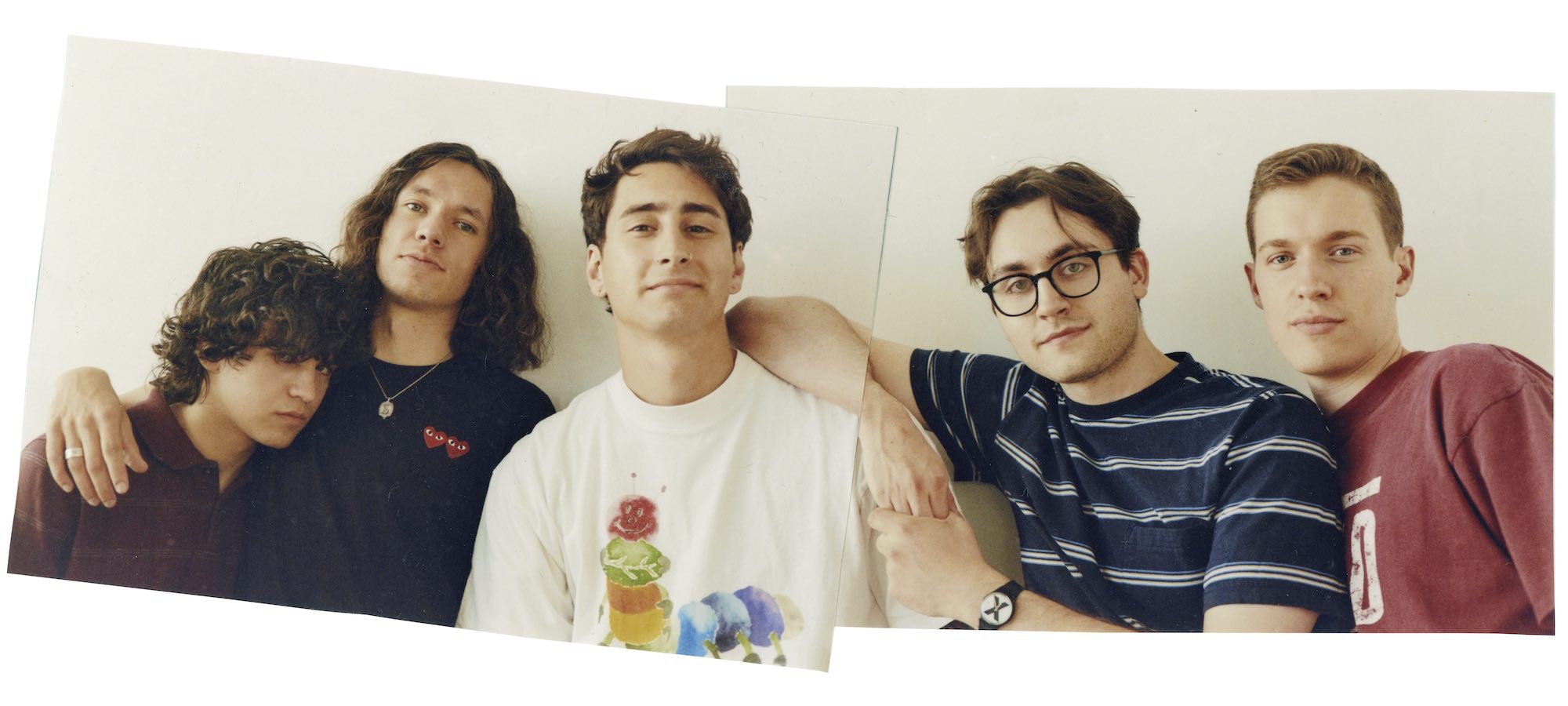
There are a lot of things you can say about Little Green House, the debut full-length from the Connecticut-based Anxious. For one, the album doesn’t sound like the first big release from a quintet of Zoomers. It could’ve just as easily been released by a band like Texas Is the Reason that broke up long before Anxious vocalist Grady Allen (or anyone else in the band) was born.
But perhaps the thing that most stands out about today’s release is that someone in Run for Cover Records’ A&R department is probably underpaid for doing the emo/punk/hardcore/post-hardcore Lord’s work.
Seriously, with a roster that includes names like Citizen, Fiddlehead and Turnover, Run for Cover really could’ve just coasted in that sector of the music world while looking to sign whoever the newest Blink-182-adjacent pop-punk kid is or putting stock into one of those trends that it was clear would never work out from the start, like emo-rap or a nü-metal resurgence. Instead, they go out and find bands like Anxious, who fit right in with the Run for Cover bands they grew up listening to.
[embedded content][embedded content]
“[Signing with Run for Cover] was very surreal,” Allen tells SPIN over the phone. “They have kind of a legacy — which is weird to say at this point because all of those bands feel current. But it’s a legacy of bands that have cultivated this scene and this sound. It was both very flattering and very crazy to see ourselves added to that roster, but it was also very fulfilling and inspiring. Ever since I was like 15 or 16, I’ve always thought Run For Cover must be the coolest label in the world to be a band on because of everyone they have. So when the offer came about, it wasn’t even a point of discussion. There was nothing to talk about. We just wanted to hop on the train.”
Regardless of the label and its history, Little Green House stands on its own as a solid singalong emo/post-hardcore experience through the entirety of its 10 songs. The multiple years of work that went into the album (thanks to the COVID-19 pandemic effectively shutting down the band’s touring, targeted release date and other plans for 2020 and some of 2021) shine through with a combination of youthful energy and personal, relatable songwriting. Hell, Anxious even pulls off a softer side on the acoustic “Wayne” better than a lot of bands twice their age. Not bad for a group that was literally a high school band a matter of months before they started seeing a bit of pre-pandemic success.
“It’s funny because when we’re hanging out with other bands on tour or wherever, the conversation inevitably turns to talking about everyone’s terrible first bands and the bands they played in during high school,” Allen says with a chuckle. “Everyone will be going down a line like ‘Oh man, the band I played in in high school was so bad’ or ‘I can’t believe that was the band I played in in high school.’ Then it gets thrown to me and it’s like ‘Uhhh, I’m still playing in it.’ I started Anxious during my freshman year of high school, and there was no ambition about it being a career or anything. I definitely didn’t think that I would still be doing it at 21. But it’s cool because we were together during those really pivotal teenage years when you’re growing up and maturing. Even if I don’t like a song we wrote when I was 15, it’s cool to have this musical journal of where I was in my life.”
[embedded content][embedded content]
Even before Allen and his bandmates — guitarists Dante Melucci and Ryan Savitski, bassist Sam Allen and drummer Jonny Camner — were old enough to legally drink, Anxious was already seeing support from the existing emo/punk/hardcore community. Their DIY mentality (as in making-their-own-merch-by-hand levels of DIY) and existing EPs secured them enough street cred and audience to get in with veterans of the scene, and the generosity and hospitality shown to them by older bands won’t soon be forgotten.
“After we put out our first EP [in 2019], we were doing shows with Lifetime and Saves the Day, which was incredibly surreal. Even now, we’re about to go out with Knuckle Puck — who was a band that I can literally remember talking about and listening to when I was 14 or 15. It’s really cool for us, and I think it’s good because it creates a blueprint for how you should treat young artists coming up in the space that you occupy. You shouldn’t turn them away or turn your nose up. When I’m that age — if I’m still creating music and on the off chance that it still means anything to anyone — I would recognize how much that can mean to kids. I want to give that same opportunity and that same gratitude and kindness to young people then.”

Leave a comment